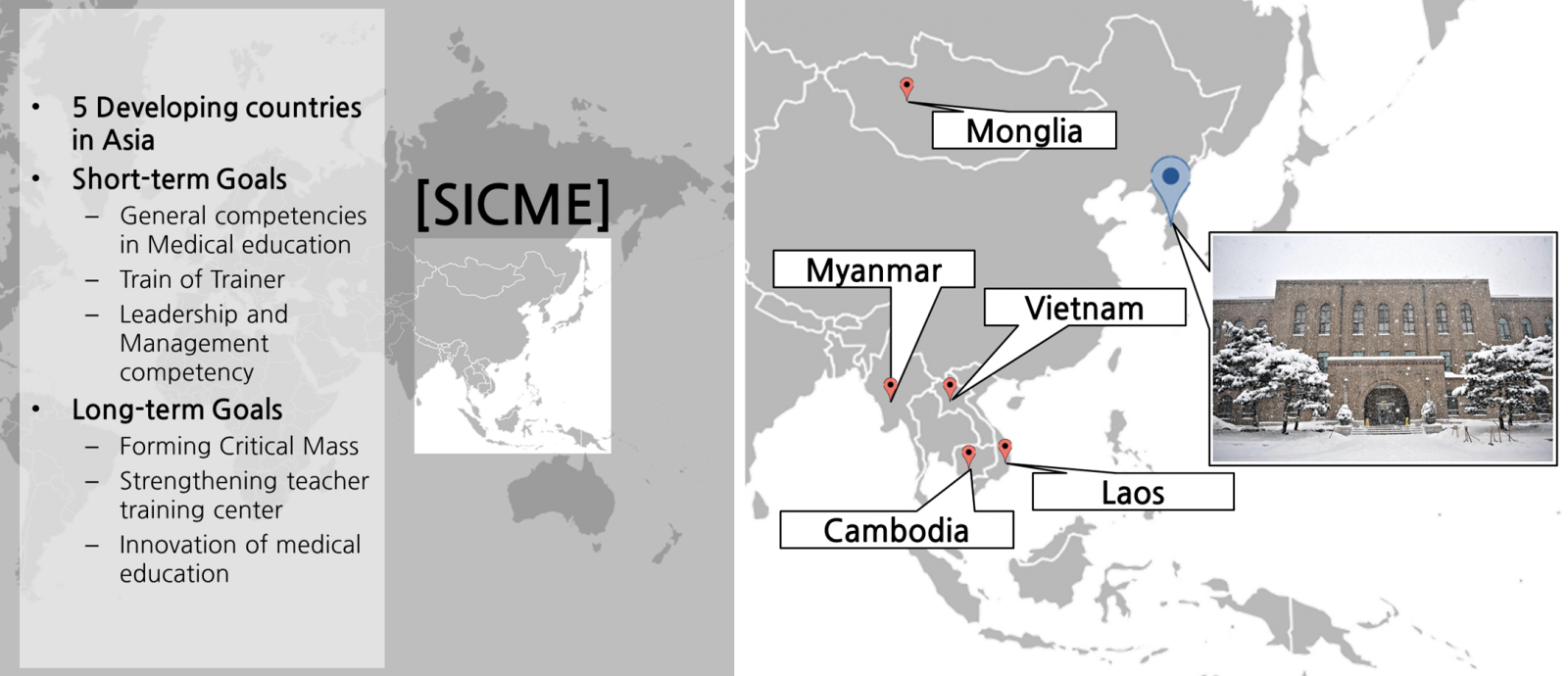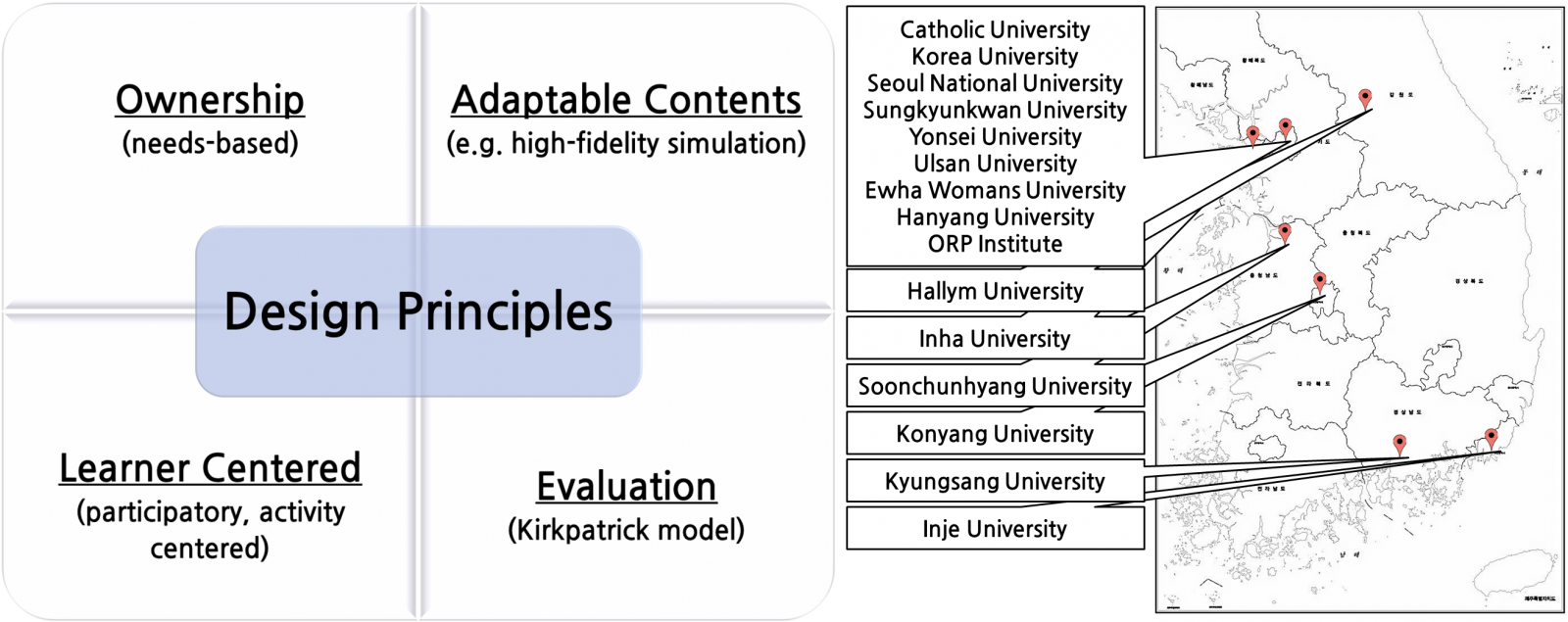
|
Authors | Institution |
|
Do-Hwan Kim* Hyun Bae Yoon Eun Jeong Kim Juhee Jeong Seung Hee Lee Jwa-Seop Shin |
Seoul National University College of Medicine - Department of Medical Education |
 |
|
||||||
| Evaluation of a faculty development program for collaboration of developing countries in Asia - Seoul Intensive Course for Medical Educators (SICME) |
Collaboration is becoming an important issue in medical education. One of the WHO's main agenda for Post-2015 is concerning human resources for health (HRH), of which many South-East Asian countries are falling short both quantitatively and qualitatively. In this context, Seoul National University College of Medicine (SNUMC) invited and provided 6 week faculty development course, Seoul Intensive Course for Medical Educators (SICME). We analyzed the evaluation of trainees about SICME to find more effective ways of collaborating hereafter.

SICME comprises 8 modules, mainly dealing with wide range of medical education. Areas like administration, leadership were also covered because many trainees were current educational leaders in their own countries. Sixteen trainees were from five Asian countries(Cambodia, Laos, Mongolia, Myanmar, Vietnam), and we conducted a survey of trainees after the course is finished.

All trainees gave 5 or 6 to the overall satisfaction (out of 6), which made the average 5.5. They showed low personal interest about 'student selection and admissions' and 'accreditation and licensing exam'. When we asked 'About which topic can you run a workshop by yourself?' they chose 4.19 topics on average, most of them included 'theory and practice of teaching and learning', 'curriculum development' and 'student assessment'. Their 'most feasible/applicable' topics were similar, but 'most urgent' topics or 'most impactful' topics varied from country to country.

Trainees showed highly positive responses to our faculty development program. If we can understand their personal and national needs more precisely, however, the effectiveness will become greater for each of them has different problems and urgency. Furthermore, while maintaining this program, we need scaling it up and long-term study of effectiveness has to be performed.
Through well-organized international faculty development program, we can expect to contribute to solve global HRH issues as well as to promote relation among countries.
The authors would like to acknowledge all 16 fellows who actively participated in SICME for whole 6 weeks. We also thank 23 facilitators from 15 medical schools who gave constructive feedback and eventually led successful workshops.
Gwee, M. C., Samarasekera, D. D., & Chong, Y. (2013). APMEC 2014: Optimising Collaboration in Medical Education: Building Bridges Connecting Minds. Medical Education, 47(s2), iii-iv.
Steinert, Y. (2000). Faculty development in the new millennium: key challenges and future directions. Medical Teacher, 22(1), 44-50.
Kanchanachitra, C., Lindelow, M., Johnston, T., Hanvoravongchai, P., Lorenzo, F. M., Huong, N. L., & Wilopo, S. A. (2011). Human resources for health in southeast Asia: shortages, distributional challenges, and international trade in health services. The Lancet, 377(9767), 769-781.
McLean, M., Cilliers, F., & Van Wyk, J. M. (2008). Faculty development: Yesterday, today and tomorrow. Medical teacher, 30(6), 555-584.
Kirkpatrick DL: Evaluating Training Programs: The Four Levels. 2nd edition. San Francisco: Berrett-Koehler Publishers; 1998.
 Send Email
Send Email
